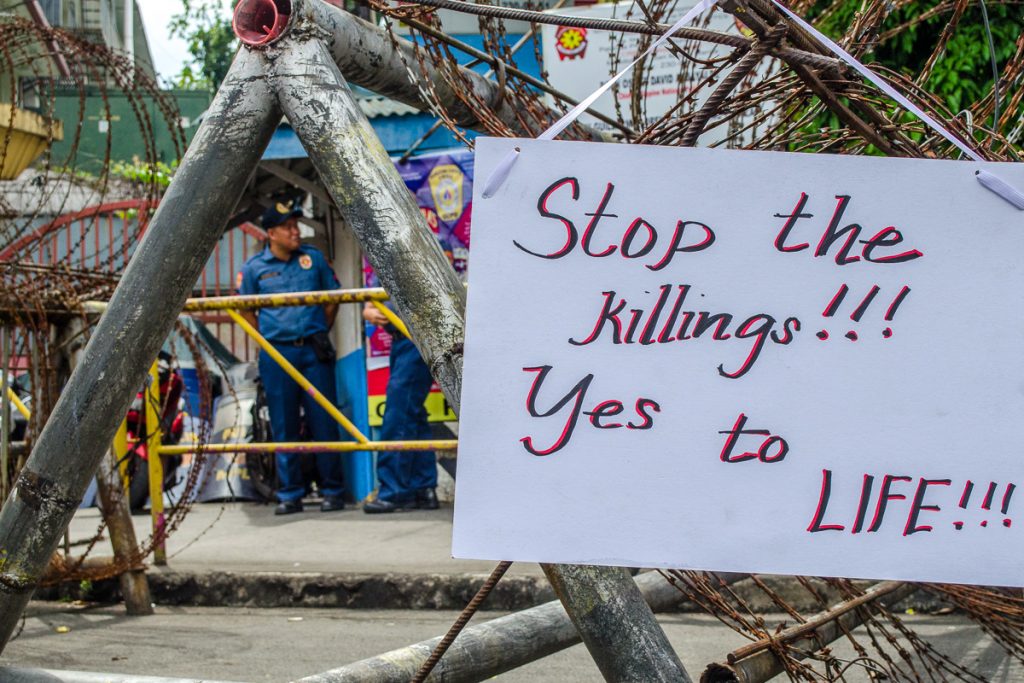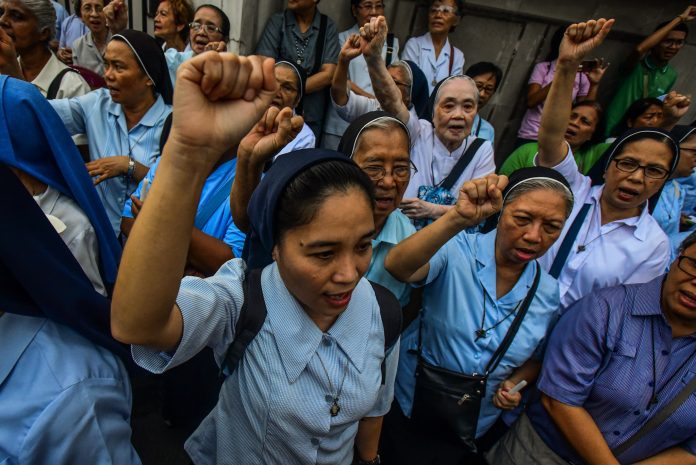A Catholic bishop, a Redemptorist missionary priest, and a Benedictine nun, are among church leaders in the Philippines who have welcomed the decision of the chief prosecutor of the International Criminal Court (ICC) to look deeper into the drug-related killings in the country.
“If there’s nothing to hide, why refuse?” said Bishop Joel Z. Baylon of Legazpi when asked about his reaction to a presidential palace statement that President Rodrigo Duterte will not likely cooperate in the investigation.
Redemptorist priest Amado Picardal, who documented alleged extrajudicial killings in the southern Philippine city of Davao when Duterte was still mayor there, said he welcomes the ICC prosecutor’s decision, saying that it is “a source of hope that those responsible will be held accountable.”
The priest, who is now based in Rome, told LiCAS.news the move will “help stop the killings that continue even during this time of the pandemic” and expressed hope that “justice be served the victims and survivors.”
The Movement Against Tyranny, which is being led by Benedictine nun Mary John Mananzan, a vocal critic of the anti-illegal drugs campaign of the Duterte administration, said a full investigation into the killings “is one big step in the quest for justice.”
“It is a testament to the perseverance of the families of the victims, their lawyers, and all those who have dared to demand justice in these dark times,” read a statement issued by the movement and signed by Sister Mananzan.
The group stressed “the great urgency” in the investigation “because the killings are ongoing, with Duterte continuing to give bloody orders to the police.”
The movement said the ICC need to realize that the investigation can put pressure on the perpetrators to stop the killings, “which have now morphed into the wholesale murder of activists, government critics, and ordinary citizens tagged as communists and terrorists.”
“President Duterte cannot hide behind his self-serving withdrawal from the ICC as the crimes to be investigated happened when the Philippines was still a member of the Court,” read the group’s statement.
Bishop Broderick Pabillo, apostolic administrator of the Archdiocese of Manila, earlier called on Duterte to cooperate in the impending investigation.
“If [the Duterte administration] did nothing wrong, the investigation will show. If they did something wrong, then the investigation will also show that,” said the bishop on June 16.
“What we want is to end the culture of impunity, that [the killers] can do whatever they want without being accountable,” said the Manila prelate, an outspoken critic of the government’s “war” against illegal drugs.

Bishop Pabillo said the country’s Catholic Church leaders have been consistent in their call for “transparency” and “accountability” in the government. “That’s why in a way [the ICC move] is a welcome development,” he said.
The prelate said “accountability is part of good governance and democracy,” adding that government officials are only stewards and “they don’t own the country … it is only entrusted to them and they have to be accountable for it.”
ICC chief prosecutor Fatou Bensouda announced on the Monday the conclusion of the preliminary examination into the situation in the Philippines and requested judicial authorization to proceed with a formal criminal investigation.
Bensouda said “crimes against humanity” could have been committed in the country since 2016 with the implementation of the government’s “war on drugs.”
Presidential spokesperson Harry Roque, however, said Duterte will never cooperate with the ICC investigation. He said any decision to move forward with the investigation “is legally erroneous, politically motivated.”
Even as the Philippines have already withdrawn from the Rome Statute, “the ICC retains jurisdiction over the Philippine territory during the period it was a State Party from 01 November 2011 up to 16 March 2019,” said Bensouda.
The Rome Statute of the International Criminal Court is the treaty that established the International Criminal Court. It was adopted at a diplomatic conference in Rome, Italy on July 17, 1998, and it entered into force on July 1, 2002.
The Philippines ratified the Rome Statute on August 30, 2011, and it entered into force from Nov. 1, 2011.
The Philippines officially withdrew from the ICC on March 17, 2019, a year after Duterte publicly announced the nation’s withdrawal. The withdrawal was triggered by ICC’s initiation of the investigation into the “war on drugs” in the Philippines.









